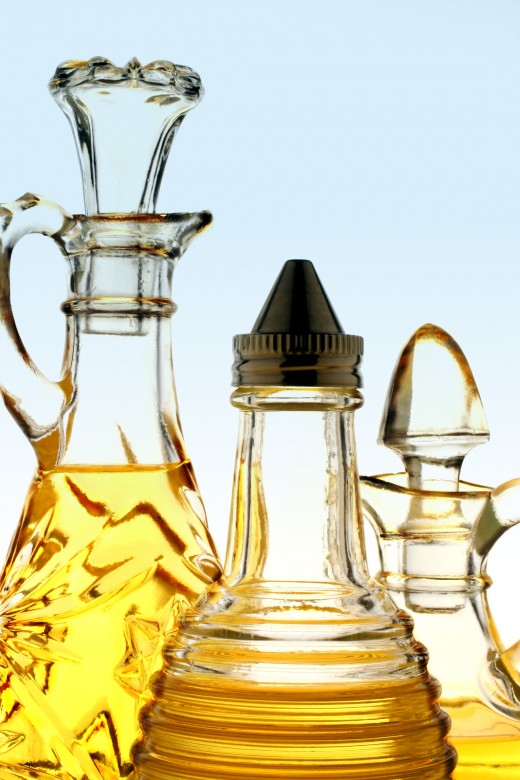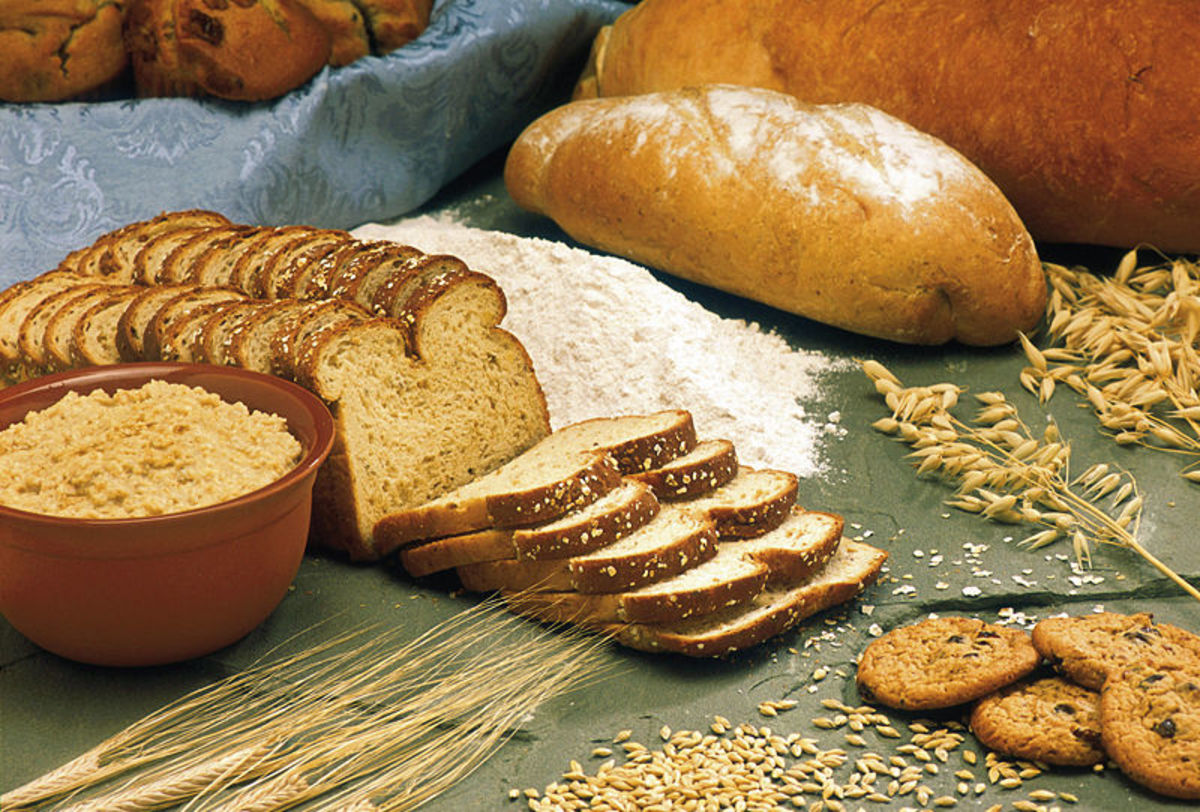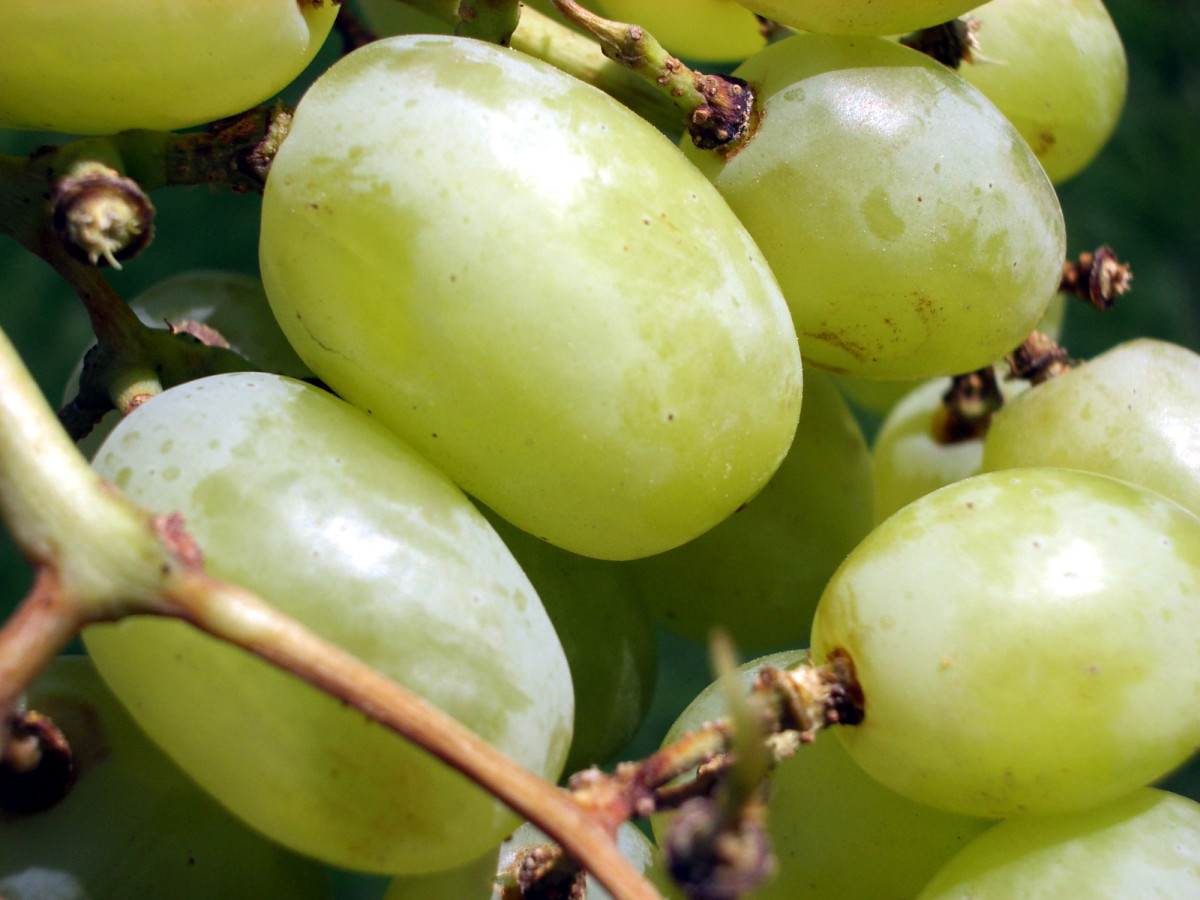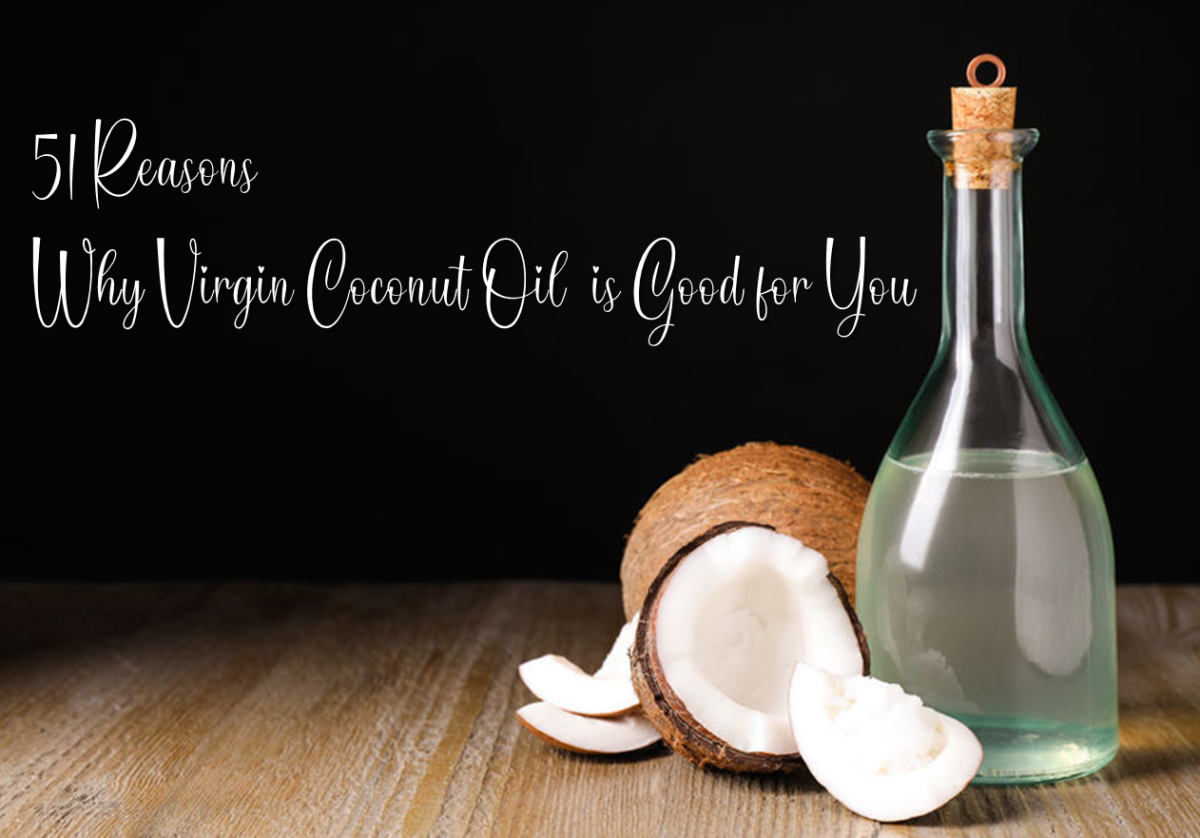The Differences Between Your Favorite Foods: Dieting Healthy
Is Olive Oil the Healthier Choice?

Dieting can be overwhelming whether you need to lose a few pounds, or hundreds of pounds. A diet is more than the calories you consume. Thin doesn't always mean healthy. What you put in your body determines the way you feel, the way your immune system works, the way your metabolism behaves and inevitably, how long you live.
You may wonder, what are the differences between certain types of foods? Some of these aren't all that different at all, while others are very different in the way our bodies respond to them. Here are some examples:
White Flour vs Whole Wheat - First, let's talk about bread. Everyone knows that white bread is not as nutritionally good for you as wheat bread. You'll find out why in a minute, but first, you may have been fooled a time or two by a package of "wheat" bread. You can avoid this mistake by reading the ingredients. If it says enriched or bleached flour, it's just brown, "white" bread. The first ingredient should always be whole grain or whole wheat. Wheat flour is also deceiving - this is only about 25 percent whole wheat, the rest is white flour.
White flour only uses one part of the grain. The bran and wheat germ are removed leaving it 80 percent less dietary fiber. White flour processes in our bodies the same way sugar does. The pancreas makes insulin which can cause fat storage, slow the metabolism and make you hungrier. So remember, enriched wheat flour is just code for white flour. Buy whole grain.
Olive Oil vs Canola Oil - Olive oil is a type of vegetable oil. The reason olive oil has been talked about as the preferred cooking oil is due to it's less-processed nature. Extra-virgin olive oil is the least processed of all, being the oil from the first pressing of the olives. It has the largest content of monounsaturated fatty acids (MUFAs) which is oleic acid. Canola oil doesn't have the same nutrients, but can be used at higher cooking temperatures unlike olive oil which should be kept at low to medium heat. Extra-virgin coconut oil is an alternative for high temperature cooking, or if you just don't like the taste of olive oil. It has a high fat content, but this is from medium-chain triglycerides which digests easily, processes as energy and doesn't store as fat. Everything in moderation, of course.
Low-Fat/Fat-Free vs Full-Fat Dairy - The first time I tried fat free cheese in the '90s, I wanted to spit it out. Since then, manufacturers have made it taste a little better, but is it really better for you than the regular, full-fat stuff? Studies have recently shown that women, over a nine year period, who consumed one serving of full-fat dairy a day gained 30 percent less weight than those consuming low-fat or no dairy at all. As a matter of fact, full-fat milk contains conjugated linoleic acid (CLA) which can not only lower the risk of certain cancers, but also help fight belly fat. The saturated fat in full-fat milk also acts as a carrier for fat-soluble vitamins. It also contains high levels of Omega-3s and Omega-6, the heart-healthy fats. In moderation, full-fat dairy can help you feel fuller and possibly lose more weight.
Simple Sugars (Carbs) vs Complex Carbs - Simple sugars are contained in table sugar, fruit juice, brown sugar, honey and syrup. They are digested fast and moved through the body quickly. The pancreas produces insulin to get the sugar out of the bloodstream. This is why you might experience an energy high followed by the shakes or weakness or simply a crash after eating a lot of sweets. Complex carbs are found in vegetables, whole grains, beans, oatmeal and pasta - and, carbs are not bad for you. Our bodies actually need and want them for fuel. You can get a lot of your daily dietary fiber from complex carbs, and since they digest more slowly, they will keep you feeling full, longer. Stick with whole grains over enriched flour products, and you'll get more fiber in your diet. Simple sugars are also found in fruit, but keep in mind, natural fruit usually has fiber, vitamins and minerals as well.
Farm-Raised vs Wild Caught Fish - This is an easy one. Buy wild fish. Farm-raised are generally higher in fat (up to 52% higher fat in salmon), fed chemicals to give them their coloring and fed an unnatural diet of fish pellets containing unhealthy ingredients. The vitamin content also varies in farm-raised fish so you might not be getting the same heart-healthy fats you would get with wild fish. There's a reason farm-raised is about a third of the cost of wild fish.
Cane Sugar vs Corn Sugar - There's a lot of controversy surrounding whether those commercials are true - that our bodies can't tell the difference between the two. Granted, if you are consuming products that have either added cane sugar or high-fructose corn syrup (HFCS), you might be getting too much sugar in your diet, daily. There is talk about how HFCS is metabolized differently than sucrose (cane sugar) and therefore, contributes to obesity. The best thing to do - stay away from sweetened sodas and juices, and consume sweets in moderation.
Iceberg vs Romaine Lettuce - You gave yourself a pat on the back when you chose that fast food salad over a burger, right? Well, you may be surprised to know that most fast food salads have very little nutritional value. That's because they are made with iceberg lettuce. Sure, it's better than the burger, but next time, make your own salad at home. Though they are the same calorie-wise, romaine lettuce has huge nutritional advantages. A cup of iceberg lettuce has 2 mg of vitamin C (keeps bones and joints strong and healthy), 215 mcg of beta-carotene (boosts immunity), 361 IUs of vitamin A (helps skin stay youthful) and 17.4 mcg of vitamin K (an anti-aging antioxidant). While romaine lettuce has a whopping 11.3 mg of vitamin C, 2,456 mcg of beta-carotene, 4,094 IUs of vitamin A and 48.2 mcg of vitamin K. Romaine lettuce holds about 40 percent or more of your daily value of these vitamins, while iceberg only has about 5 percent. Alternatively, fresh spinach, kale and collard greens also have very high values of these vitamins - some of them ten times the amount of romaine!
Egg Whites vs Whole Eggs – I love a good egg yolk. I have never been a fan of a plain egg white. That's why I was thrilled to see that whole eggs are fine in moderation (up to four per week), and generally don't raise blood cholesterol levels. Keep in mind, this applies to people with a current, normal cholesterol level and no heart disease. You'll get enough protein from the egg whites, but what you won't get is the vitamin D, iron, vitamin B12 and essential fatty acids. If you want to eat eggs in moderation, try an omelet with two eggs whites and one full egg, but don't eliminate the yolks completely.
Instant Oatmeal vs Steel-Cut Oats - The difference between instant oatmeal and steel-cut oats may surprise you. Believe it or not, the major difference is the sodium content. Whereas steel-cut oats contain little to no sodium, one package of instant oatmeal has about 300 mg. You can cut down on sugar by getting lower sugar or plain instant oatmeal. Lower sugar versions have about a third of the sugar of fully sweetened versions. Whether you choose instant or steel-cut, you are getting around the same calories per serving, plus the same vitamins and minerals. Some may argue that because instant oats are rolled and steamed, unlike the unprocessed steel-cut oats, they hold less nutritional value, but the fact is, they will loose some nutritional value whether you or the manufacturer cooks them. Steel-cut oats may seem inconvenient to some because they take around 20 to 30 minutes to cook. Alternatively, you can try Scottish Oatmeal which takes around five minutes, or Old-Fashioned Rolled Oats. Either way, oats are a good choice for insoluble and soluble fiber. They can lower cholesterol and make you healthier in the long run.
References:
http://products.mercola.com/coconut-oil/
http://articles.mercola.com/sites/articles/archive/2011/05/21/why-you-need-to-avoid-low-fat-milk-and-cheese.aspx
http://www.doctoroz.com/videos/good-carbs-vs-bad-carbs
http://drhyman.com/5-reasons-high-fructose-corn-syrup-will-kill-you-5050/
http://www.brittnaegiesau.com/the-skinny-on-egg-yolk
http://www.formerfatguy.com/articles/oatmeal/oats.asp





